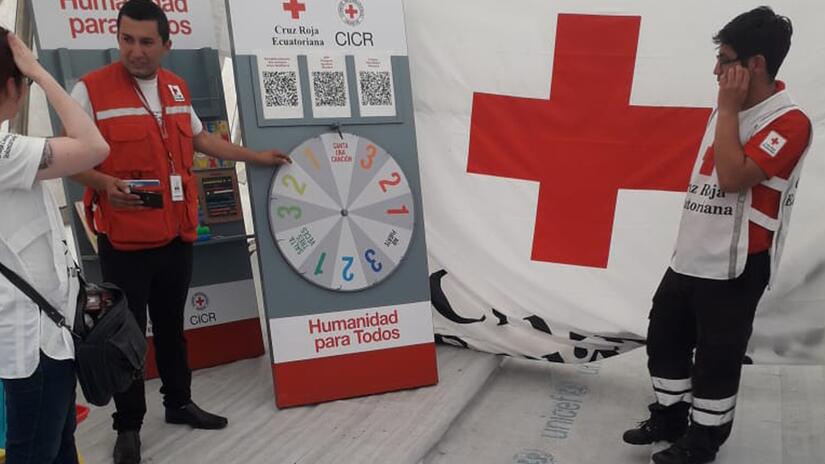“It is emotional work. When children arrive they are so exhausted and need time to rest, play and not be seen as migrants,” says William Guerra. He is a volunteer with the Ecuador Red Cross supporting a safe space for children in the town of Lago Agrio, in the Province of Sucumbíos, which is a border point with Colombia.
Many of the migrant children and families who arrive at the border come to Colombia from Venezuela as their country experiences severe political and economic distress. The numbers of children who cross this border point can fluctuate each day. Recently there have been as many as thirty and forty children each day, many with a parent or grandparent, but some also migrating alone.
In response to the needs faced by migrant children, the Ecuador Red Cross implements 14 safe spaces in 11 provinces across the country. It also has additional mobile safe spaces it deploys when the number of migrants increase. The mobile spaces support children as they walk for long distances in hard to access locations.
Marisol Pallo, another volunteer in Lago Agrio explains that each safe space provides an assortment of humanitarian services to children and families that seek to improve psychosocial wellbeing and protection. “We see that children here have many needs so we help with first aid, restoring family links, discussing child rights, play, and just let children be surrounded by normal things. We also provide shoes to replace the broken and worn down ones.” Marisol notes, “We need to work hard because we know this is not normal and childhood should not be this way.”
Priscila Naranjo, a local college student who volunteers at the safe space, tell us, “We see so many bad stories about migrants in the news but the reality is so different. Here you see the humanitarian needs and that these are just children like all other children.”
Article
Sudan: 'the most difficult year' after outbreak of conflict
Sudan: 'the most difficult year' after outbreak of conflict
| Article

